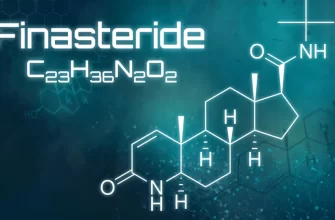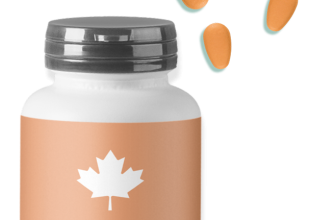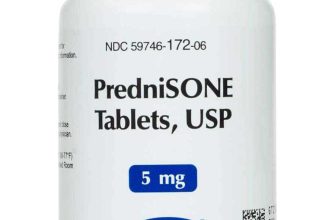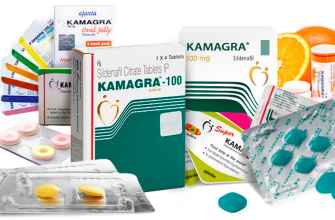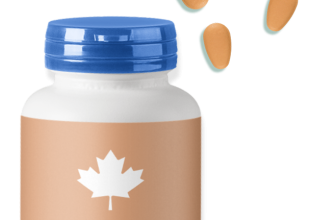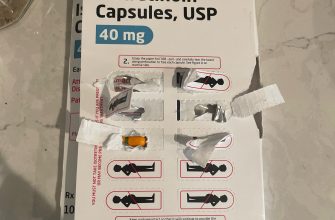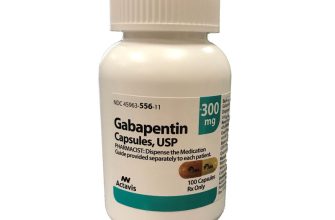If you’re seeking a reliable alternative to Accutane for acne treatment, consider clascoterone. This topical androgen receptor inhibitor effectively targets acne without the systemic side effects associated with traditional oral medications. Users have reported significant improvements in their skin condition after just a few weeks of application.
Clinical studies show that clascoterone not only reduces inflammatory lesions but also helps prevent new breakouts. The formulation is designed for daily use, making it convenient for integrating into any skincare routine. Unlike Accutane, which often requires stringent monitoring due to potential side effects, clascoterone offers a more manageable treatment option.
Another promising option is isotretinoin gel, targeted for localized treatment. This topical form provides similar benefits as its oral counterpart but minimizes systemic exposure. As a result, patients can aim for lasting results while reducing the likelihood of experiencing adverse effects.
Consult with a dermatologist to explore these alternatives and find the treatment that best suits your skin’s unique needs. With advancing options available, effective acne management is within reach without the burdensome side effects of traditional methods.
- New Prescription Alternative to Accutane
- Efficacy and Advantages
- Side Effects and Considerations
- Understanding Isotretinoin: What You Need to Know
- Mechanism of Action
- Dosage and Administration
- Potential Side Effects
- Precautions
- The Rise of New Acne Treatments: A Comparative Analysis
- Mechanism of Action: How the New Alternative Works
- Receptor Interaction
- Anti-inflammatory Properties
- Potential Benefits of the New Prescription Alternative
- Improved Safety Profile
- Convenient Administration
- Side Effects and Risks: What to Expect
- Potential Risks
- Important Considerations
- Patient Testimonials: Real Experiences with the New Treatment
- Cost and Accessibility: Is the New Alternative Affordable?
- Insurance Coverage and Discounts
- Accessibility Through Pharmacies
- Consulting Your Dermatologist: Important Questions to Ask
- Understanding the Treatment
- Side Effects and Monitoring
New Prescription Alternative to Accutane
The latest prescription alternative to Accutane, called Isotretinoin, offers similar benefits with potentially fewer side effects. This medication targets severe acne and can lead to long-lasting improvements. Patients experience a clearer complexion within a few months. It is essential to discuss any medical history and current treatments with a healthcare provider before starting this medication to ensure safe usage.
Efficacy and Advantages
Isotretinoin functions by reducing sebum production, preventing clogged pores, and decreasing inflammation. Clinical studies indicate that approximately 85% of patients achieve significant acne clearance after a standard course. This treatment not only addresses existing acne but also helps prevent future breakouts, providing a comprehensive solution.
Side Effects and Considerations
Common side effects include dry skin, chapped lips, and increased sensitivity to sunlight. Patients should monitor their skin condition closely and communicate with their healthcare provider regarding any concerns. Regular follow-ups are vital for managing side effects and adjusting dosages as needed. Staying hydrated and using moisturizers can mitigate some discomfort associated with treatment.
Understanding Isotretinoin: What You Need to Know
Isotretinoin is a powerful medication primarily used to treat severe acne. If your acne has not responded to conventional treatments, this option may be beneficial.
Mechanism of Action
This medication reduces the amount of oil released by your skin’s oil glands. Isotretinoin also decreases the size of these glands, preventing future breakouts.
Dosage and Administration
- Take isotretinoin with food for better absorption.
- Your doctor will determine the appropriate dosage based on your weight and acne severity.
- Adhere to the prescribed cycle, typically lasting 15 to 20 weeks.
Potential Side Effects
- Dry skin and lips are common; use moisturizers to alleviate discomfort.
- Eye irritation may occur; consider lubricating eye drops.
- Be aware of possible mood changes; report any significant changes to your doctor.
Precautions
- Pregnant women should avoid isotretinoin due to risk of birth defects.
- Regular blood tests are necessary to monitor liver function and cholesterol levels.
- Avoid donating blood while on this medication and for at least a month after treatment.
Isotretinoin can significantly improve acne, but it requires careful management. Consult with your healthcare provider to determine if it’s the right fit for your skin concerns.
The Rise of New Acne Treatments: A Comparative Analysis
New acne treatments offer promising alternatives to Accutane. Among them, Spironolactone stands out as a popular choice for hormonal acne, particularly in women. Clinical studies show that it can reduce sebum production and improve skin appearance over time, making it a solid option for those resistant to traditional therapies.
Adapalene, a topical retinoid, gained approval for over-the-counter use, providing accessible treatment for mild to moderate acne. Its ability to promote cell turnover helps prevent clogged pores and reduces inflammation. Adapalene’s safety profile, along with its non-irritating formulation, makes it suitable for long-term use.
Another noteworthy alternative is Isotretinoin (low-dose), a milder version of Accutane. Research suggests that lower doses can achieve similar results with fewer side effects. Patients report reduced acne breakouts and scarring, often leading to better adherence to treatment. Regular monitoring remains essential to manage any potential side effects effectively.
Dapsone gel, an anti-inflammatory treatment, is effective for inflammatory acne. It works well on its own or in combination with other treatments, enhancing their effects. Studies indicate significant improvement in acne severity when used consistently, and its compatibility with various skin types makes it a versatile addition to acne management plans.
Light and laser therapies also gain traction in acne treatment. These procedures reduce bacteria and inflammation while promoting faster healing of acne lesions. Many patients enjoy long-lasting results and less dependency on medications. Consulting with a dermatologist can determine the best approach based on individual skin types and concerns.
In summary, options like Spironolactone, Adapalene, low-dose Isotretinoin, Dapsone gel, and light therapies present effective alternatives to Accutane. Each treatment offers unique benefits, allowing patients and healthcare providers to tailor approaches based on specific needs, leading to clearer skin and improved confidence.
Mechanism of Action: How the New Alternative Works
This new prescription alternative operates through a multi-faceted approach that targets the root causes of acne. Primarily, it modulates sebum production by interacting with specific hormonal pathways. By decreasing sebum secretion, this treatment directly addresses one of the primary contributors to acne development.
Receptor Interaction
The alternative engages with androgen receptors, effectively reducing the influence of androgens on sebaceous glands. This interaction leads to a marked decrease in the size and activity of these glands. As a result, the skin maintains lower oil levels, creating an environment less favorable for acne-causing bacteria.
Anti-inflammatory Properties
In addition to regulating sebum, this treatment exhibits potent anti-inflammatory properties. It inhibits the expression of pro-inflammatory cytokines, thereby diminishing redness and swelling associated with acne lesions. This dual action ensures not only fewer breakouts but also quicker healing of existing ones.
| Mechanism | Effect |
|---|---|
| Sebum Production Reduction | Lower oil levels reduce acne formation |
| Androgen Receptor Modulation | Decreased gland activity |
| Anti-inflammatory Action | Reduced redness and swelling |
This combination of actions effectively clears existing acne and prevents further outbreaks, making the new alternative a reliable choice for those seeking a safer option compared to traditional treatments like Accutane.
Potential Benefits of the New Prescription Alternative
This new prescription alternative to Accutane offers several advantages that may appeal to those seeking treatment for severe acne. The tailored approach allows for individualized dosing, which can enhance treatment outcomes. Patients experience fewer side effects compared to traditional Accutane, making it more tolerable for long-term use.
Improved Safety Profile
One significant benefit lies in the reduced risk of severe side effects. Patients often report fewer issues such as dry skin or sensitivity, which are common with Accutane. This improved safety profile encourages adherence to treatment and reduces the need for additional medications to manage side effects.
Convenient Administration
Convenience also plays a crucial role. This alternative is available in various forms, including topical applications, which can simplify the treatment regimen for many users. The option to apply medication directly to affected areas enhances its effectiveness while minimizing systemic exposure.
Additionally, the gradual onset of results provides a manageable expectation, allowing patients to monitor their progress without overwhelming changes. With its personalized approach, improved safety, and convenient administration, this new alternative presents a compelling option for those struggling with acne.
Side Effects and Risks: What to Expect
Monitor your body closely after starting a new prescription alternative to Accutane. Common side effects include dry skin, chapped lips, and occasional joint pain. Staying hydrated can help alleviate some dryness, while a good lip balm may provide relief for chapped lips.
Potential Risks
Some users experience more serious side effects, such as mood changes, fatigue, or gastrointestinal issues. If you notice significant mood swings or worsening depression, consult your healthcare provider immediately. Regular check-ins with your doctor can help manage these risks effectively.
Important Considerations
Women of childbearing age must use effective birth control during treatment, as it may cause severe birth defects. Schedule routine blood tests to monitor liver function and cholesterol levels, as these can be affected by the medication.
Always communicate any new symptoms or side effects with your doctor. They can adjust your dosage or recommend additional treatments to minimize discomfort. Prioritize open communication to ensure a safe and effective treatment experience.
Patient Testimonials: Real Experiences with the New Treatment
Jessica, a 24-year-old graphic designer, shares her experience: “After struggling with severe acne for years, I tried the new treatment recommended by my dermatologist. Within just six weeks, I noticed a significant reduction in breakouts. The side effects were minimal compared to Accutane, making the entire process much easier for me.”
Mark, 30, states, “I was hesitant to switch from Accutane due to its effectiveness, but the new medication surprised me. My skin cleared up within two months, and I didn’t experience the extreme dryness I dreaded. Healthy skin feels achievable.”
Alice, 19, highlights her rapid results: “This treatment gave me my confidence back. Friends began complimenting my clear skin after just a month. I appreciate how my doctor monitored my progress, ensuring I felt comfortable throughout.”
Tom, 27, had previously dealt with hormonal acne: “Switching to this new option was one of the best decisions I’ve made. I went from nightly breakouts to clear skin that lasts. Plus, I love that I don’t have to visit the pharmacy often.”
Emily, 22, adds, “I struggled with Accutane’s strict requirements and concerns about long-term effects. The new treatment felt less daunting, and I found it easier to incorporate into my daily routine. The results exceeded my expectations.”
These testimonials reflect the positive impact of the new treatment on individuals varying in age and skin concerns. Clear skin is now more accessible than ever for those seeking alternatives to traditional therapies.
Cost and Accessibility: Is the New Alternative Affordable?
The new prescription alternative presents a more accessible option than Accutane, primarily due to its lower cost. Most insurance plans cover this medication, which significantly reduces the out-of-pocket expenses for patients. On average, the price per month ranges between $100 to $300, depending on the specific formulation and dosage prescribed. This affordability allows more individuals to consider effective treatment for severe acne.
Insurance Coverage and Discounts
Many patients find that their healthcare provider can assist with prior authorizations, which can ensure that the medication is covered by insurance plans. Additionally, various pharmaceutical companies offer patient assistance programs that can further decrease the financial burden on those without insurance or with high deductibles.
Accessibility Through Pharmacies
Availability at local pharmacies has improved since the introduction of this alternative. Most pharmacies stock these medications, making it easier for patients to obtain their prescriptions without long waits or complicated approval processes. Online pharmacies also provide convenient options for ordering and refilling prescriptions, enhancing overall accessibility.
Consulting Your Dermatologist: Important Questions to Ask
Before starting any new prescription alternative to Accutane, ask your dermatologist the following questions:
Understanding the Treatment
- What are the active ingredients in this medication?
- How does this treatment compare to Accutane in terms of results and side effects?
- What is the expected timeline for seeing improvements?
Side Effects and Monitoring
- What potential side effects should I be aware of?
- How will we monitor any adverse effects during the treatment?
- Are there any specific symptoms I should report immediately?
It’s also essential to discuss any other medications or treatments you’re using. This helps ensure that your dermatologist can provide personalized advice that considers your entire health profile.
Lastly, inquire about lifestyle recommendations that might enhance the treatment’s effectiveness, such as dietary changes or skincare routines.


